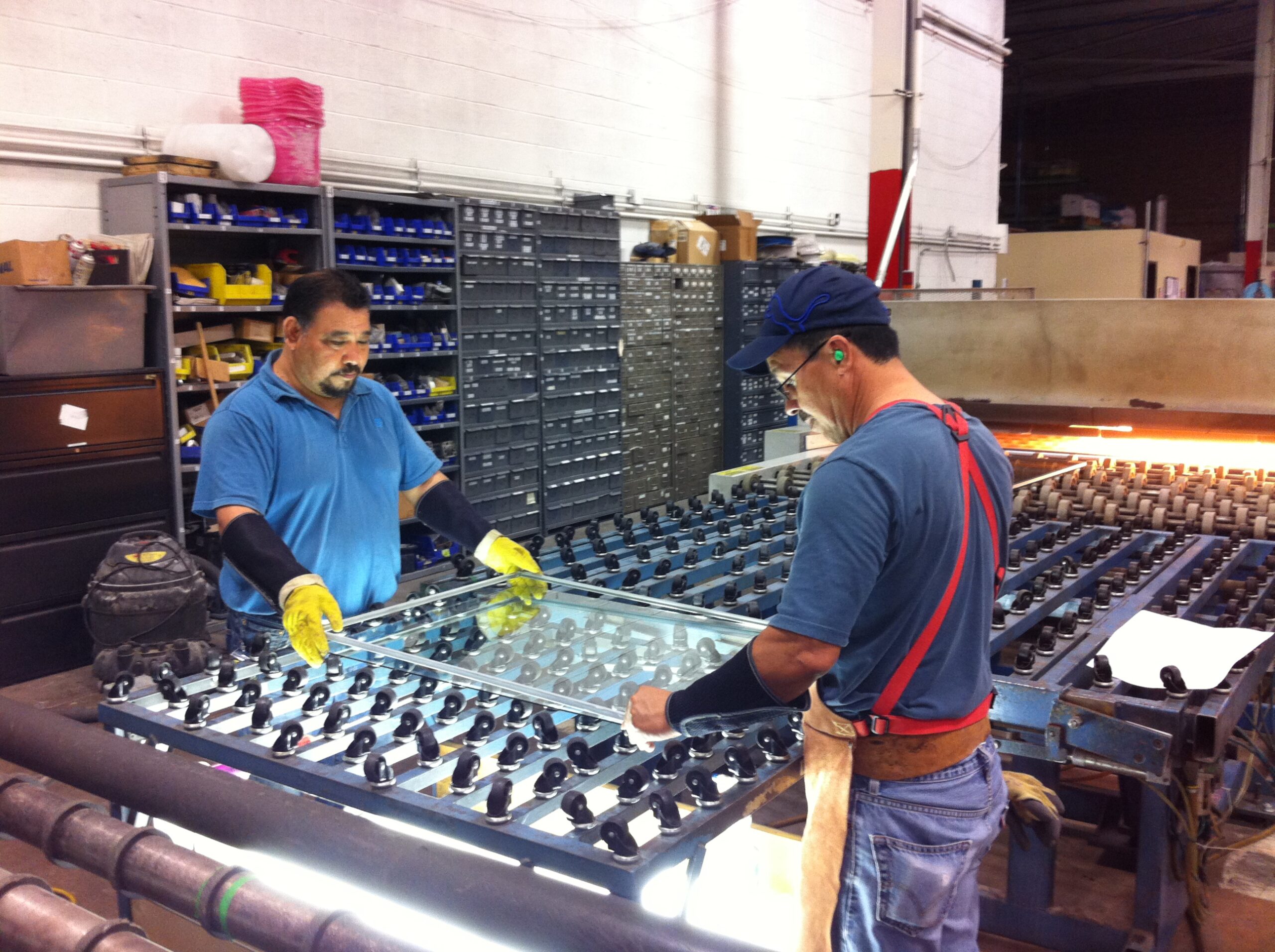With ongoing growth in manufacturing, there is a high demand for factory workers to fill vacancies in industries such as automotive, food processing, electronics, and textiles. As Canadian employers face challenges in finding local talent, many are turning to foreign workers to meet their labor needs. This has led to an increase in visa sponsorship opportunities for foreigners seeking factory jobs in Canada.
For immigrants, factory work offers a reliable entry point into the Canadian labor market. The jobs are often available with minimal experience and can provide stable income with the potential for career growth. Factory workers benefit from competitive wages, employee benefits, and the opportunity to work in one of the world’s most developed and inclusive economies.
This article will explore the skills required, regions with the highest pay, visa options, and how to secure a factory job with visa sponsorship.
Entry-Level Skills and Experience Required
Factory jobs in Canada typically do not require formal education, making them accessible to many immigrants. However, some basic skills and experience can increase employability:
- Physical stamina: Factory workers often perform manual labor, requiring the ability to lift, push, pull, or carry heavy objects and stand for long periods.
- Basic technical skills: Familiarity with factory equipment and machinery is beneficial. Training is usually provided, but having a foundation in operating tools or machinery can be an asset.
- Attention to detail: Workers must follow instructions carefully and ensure that products are manufactured to the required standards and specifications.
- Safety awareness: Knowledge of workplace health and safety procedures is important. Factory workers need to adhere to strict safety protocols to avoid accidents and injuries.
- Teamwork and communication: Many factory jobs require workers to collaborate in teams, making communication skills essential.
- Experience: While some positions are open to those with no prior experience, having previous experience in manufacturing or a related industry can be advantageous.
Many employers offer on-the-job training, so even if a worker lacks experience, they can still acquire the necessary skills through training programs.
Regions with the Highest Payment Structures
Different regions in Canada offer varying pay structures for factory workers, often influenced by the cost of living and the demand for labor. Below are the top five regions with the best payment structures for factory workers:
- Toronto, Ontario:
- As Canada’s largest city and manufacturing hub, Toronto has a high demand for factory workers, particularly in the automotive and electronics sectors.
- Average hourly rate: CAD $18 – $25 per hour.
- Vancouver, British Columbia:
- Vancouver has a growing manufacturing industry, with many factories in food processing, pharmaceuticals, and electronics.
- Average hourly rate: CAD $19 – $26 per hour.
- Calgary, Alberta:
- Calgary’s industrial and manufacturing sectors have seen steady growth, creating numerous opportunities for factory workers.
- Average hourly rate: CAD $17 – $24 per hour.
- Ottawa, Ontario:
- Ottawa’s manufacturing industry, which includes aerospace and defense, offers competitive wages for factory workers.
- Average hourly rate: CAD $17 – $23 per hour.
- Montreal, Quebec:
- Montreal has a strong manufacturing base in industries like textiles, aerospace, and electronics, providing factory workers with well-paying jobs.
- Average hourly rate: CAD $16 – $22 per hour.
Salary Expectations for Immigrants
Here is a table summarizing the salary expectations for factory workers in different regions of Canada:
| Region | Average Hourly Rate (CAD) | Annual Salary (CAD) (Estimated) |
|---|---|---|
| Toronto, Ontario | $18 – $25 | $37,440 – $52,000 |
| Vancouver, BC | $19 – $26 | $39,520 – $54,080 |
| Calgary, Alberta | $17 – $24 | $35,360 – $49,920 |
| Ottawa, Ontario | $17 – $23 | $35,360 – $47,840 |
| Montreal, Quebec | $16 – $22 | $33,280 – $45,760 |
In summary, factory workers in Canada can expect competitive wages, with salaries varying based on location and industry. In high-demand regions like Toronto and Vancouver, workers may earn higher wages, and many positions also offer overtime pay and employee benefits.
Companies Hiring Factory Workers in Canada
Several companies across Canada hire factory workers and offer visa sponsorship to foreign workers. Below is a list of companies that are actively hiring, along with their basic requirements:
- Magna International (Automotive manufacturing):
- Requirements: Basic understanding of manufacturing processes, ability to work in a fast-paced environment, physical stamina.
- Offers visa sponsorship for skilled workers in the automotive sector.
- Maple Leaf Foods (Food processing):
- Requirements: Ability to handle repetitive tasks, work in cold or hot environments, and follow food safety regulations.
- Provides training and offers visa sponsorship for immigrants.
- Linamar Corporation (Automotive and industrial parts manufacturing):
- Requirements: High school diploma or equivalent, basic mechanical skills, ability to work in a team.
- Open to hiring foreign workers through visa sponsorship programs.
- Bombardier (Aerospace manufacturing):
- Requirements: Previous experience in aerospace or mechanical assembly is an asset, strong attention to detail, and safety awareness.
- Actively hires skilled workers and offers sponsorship for qualified candidates.
- Saputo Inc. (Dairy products manufacturing):
- Requirements: Ability to work in a fast-paced environment, lift heavy products, and follow safety protocols.
- Offers visa sponsorship for foreign workers with relevant experience.
Visa Types and Options for Factory Workers
Foreign workers seeking factory jobs in Canada have several visa options, depending on their qualifications and the employer’s needs:
- Temporary Foreign Worker Program (TFWP):
- This program allows employers to hire foreign workers to fill temporary labor shortages. A Labour Market Impact Assessment (LMIA) is required for this visa, proving that no Canadian workers are available to fill the role.
- Provincial Nominee Program (PNP):
- Several provinces have streams within their nominee programs specifically designed for low-skilled or semi-skilled workers, including factory workers. Being nominated by a province can lead to permanent residency.
- Atlantic Immigration Program (AIP):
- Employers in the Atlantic provinces (Newfoundland, Nova Scotia, New Brunswick, and Prince Edward Island) can hire foreign workers to fill essential jobs, including factory work. This program offers pathways to permanent residency.
- Express Entry – Federal Skilled Trades Program (FSTP):
- While factory work is often considered low-skilled, certain specialized manufacturing roles may qualify under the FSTP, offering a faster route to permanent residency.
Where to Find Factory Job Opportunities
There are several online platforms where foreign workers can find factory job opportunities in Canada:
- Job Bank Canada: The government’s official job portal lists various factory positions, many of which are open to foreign workers with visa sponsorship.
- Indeed: A global job site that often features factory job openings across Canada.
- LinkedIn: Networking and job searching on LinkedIn can connect workers with Canadian employers seeking factory workers.
- Company websites: Many manufacturing companies post job openings directly on their websites, allowing candidates to apply directly.
- Immigration-focused job boards: Websites like Moving2Canada and CanadaVisa frequently list jobs available to foreign workers with visa sponsorship options.
How to Apply for Factory Jobs as an Immigrant in Canada
To apply for factory jobs in Canada as an immigrant, follow these steps:
- Prepare your resume: Ensure your resume is tailored to Canadian standards, emphasizing relevant factory work experience, skills, and certifications.
- Research job openings: Use job portals and company websites to find factory jobs that offer visa sponsorship. Focus on regions with high demand for factory workers.
- Submit your application: Apply for jobs that match your skills and qualifications. Attach a cover letter explaining why you are an ideal candidate for the position and how your skills align with the job requirements.
- Follow up with employers: If you don’t receive an immediate response, consider following up with the employer to express your continued interest.
- Prepare for interviews: Be ready to discuss your experience in manufacturing and your ability to meet the physical and technical demands of the job.
- Work on visa requirements: Once you receive a job offer, work with your employer to apply for the appropriate visa and work permit through programs like the TFWP or PNP.
Factory work in Canada provides a solid foundation for immigrants to establish a stable career, offering competitive wages, benefits, and pathways to permanent residency. By following these steps, immigrants can successfully navigate the process of securing factory jobs with visa sponsorship in Canada.
Author Picks:
 Cleaning Jobs in Canada with Visa Sponsorship for Foreigners
Cleaning Jobs in Canada with Visa Sponsorship for Foreigners
 Housekeeping Jobs in Canada with Visa Sponsorship for Foreigners
Housekeeping Jobs in Canada with Visa Sponsorship for Foreigners
 Software Developer Jobs in Canada with Visa Sponsorship for Foreigners
Software Developer Jobs in Canada with Visa Sponsorship for Foreigners
 Registered Nurse Jobs in Canada For Foreigners With Visa Sponsorship
Registered Nurse Jobs in Canada For Foreigners With Visa Sponsorship
 Home Health Helper Jobs in USA with Visa Sponsorship for Foreigners
Home Health Helper Jobs in USA with Visa Sponsorship for Foreigners
 Farm Worker Jobs in Australia with Visa Sponsorship for Foreigners
Farm Worker Jobs in Australia with Visa Sponsorship for Foreigners


